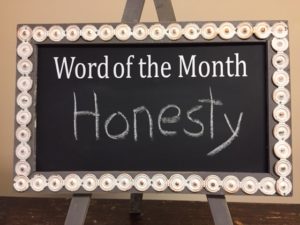
Some thoughts about honesty in a world of deception, relative truth, and rationalization.
Honesty & Truth
Honesty is an admirable virtue. It is an aspect of good character, an indicator of a good person. There are generally two aspects of honesty – honesty in speech and action. These are reflected in two of the Ten Commandments: Thou shalt not steal and Thou shalt not give false witness. But honesty goes beyond these outward manifestations.
To be truly honest, there must be a clear standard of truth with which to be true. There are a plethora of laws dealing with all of the potential instances of dishonesty.
One could insist that it is the intent at the core of honesty or dishonesty that matters. If the intent is to mislead or deceive, that is clearly dishonest, while those who are misinformed may speak untruths without awareness. Deception is the presentation of opinion, belief, or perception as truth.
When we do not act in accordance with real truth – absolute truth – we are deceiving ourselves. We deceive ourselves first because we want to believe we are okay doing what we want to do. We then seek agreement from others to validate our own false perception and actions.









